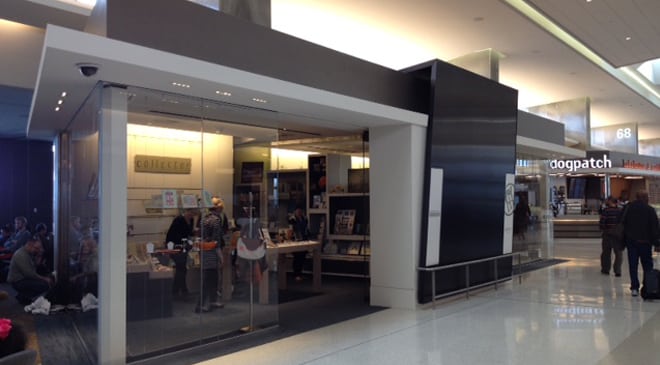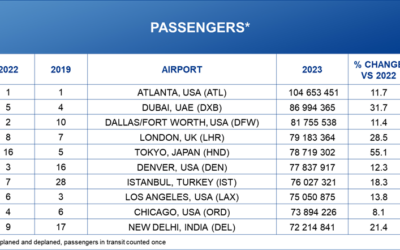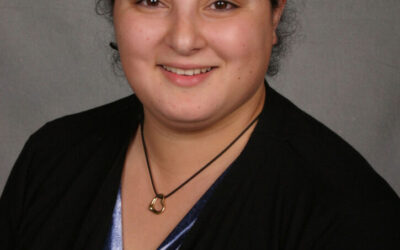The first set of companies chosen to participate in San Francisco International’s (SFO) pop-up store retail program opened Jan. 28. John Reeb, senior principal property manager for SFO, spoke with Airport Revenue News’ Ramon Lo about the program.
Lo: We’ve spoken several times and you’ve mentioned how the team will canvass the city for great locals or unique concepts that might work in the airport. Was that the inspiration for the pop-up program?
Reeb: One of the benefits of the Bay Area is that we have a lot of cool concepts, not just in food but in retail, as well. In our efforts to outreach in the past, we’ve visited a lot of spots, combing the various neighborhoods. When we got people to come to our info conferences to see how we do business at the airport, the biggest feedback that we’ve gotten is that it’s very cost prohibitive. So a lot of the smaller businesses that were doing well on the street didn’t have the capital to invest in a build-out at the airport. We figured, let’s find a way to make it more financially viable and bring these concepts out to the airport and give them a try.
Lo: Did you feel it was positively met? Was there a lot of interest?
Reeb: There was. We had at our conference about 20 different small businesses that we had found through our outreach efforts. Even since we’ve commenced the program, we’re still getting calls from a bunch of people who want to get involved. Right now, we’re set for the next three years.
Lo: What was the overall goal of the program?
Reeb: Really to feature the local smaller businesses that we have here and give them a vehicle to test out the airport market without a ton of financial risk.
Lo: Other airports have programs similar to this but it’s more seasonal, revolving around holidays and events. Is that what you were envisioning, as well?
Reeb: Something a little bit more than seasonal. We established our terms at either six months or 12 months. What we’ve done in the past for new concepts were trials. We have to go to our commission for that. But a trial is typically a six-month-long duration test of a concept to see how viable it is. This was a way of bringing concepts in on a more frequent basis without having to go through that process every time. Zoom[Systems] is an example of a concept that when they started up, we tried out here on a trial basis and they were successful.
Lo: What was the selection process like? Did it follow the typical bid process that you would normally have for your regular concession packages?
Reeb: We streamlined the [request for proposal] process for this to make it less cumbersome and less costly for interested parties to submit proposals. There wasn’t as much paperwork needed for this process, but it still went through the same evaluation process. We have an independent three-member panel that will review the proposals and score them accordingly.
Lo: Who are the winners?
Reeb: Collector, a small art shop out of Berkley, [Calif.], and McEvoy Ranch, who does olive oil-based bath and body care products, are the first two. We have four more that will commence next year. One is called FGR Chocolates, who does gourmet chocolates. One is Small Foods, who is kind of a small grocery/deli down by the ballpark in the city, a little upscale and cool a la Napa Farms-ish. XOX Truffles, they’re a small shop on Polk Street that does gourmet, handmade truffles.
Lo: So it’s two spaces at a time on a rotating basis every six to 12 months?
Reeb: There are two spaces in one location, essentially divided into two spots. The No. 1 proposer got to choose their space. There’s a smaller space and a larger space. McEvoy was the No. 1 proposer, so they chose the larger space. The No. 2 space was actually FGR but what we did was go down the list in the ranks and selected Collector because we thought it was a better adjacency. We didn’t want to have chocolates with bath and body oils, per se. The next two will go by ranking and will fit. Elizabeth W, they’re a boutique specializing in fragrances and skin care products all made locally. They just opened up a shop in Carmel, [Calif.].
When they proposed, they got to choose which term of length they wanted and they all chose the 12-month term. When the next two come up, they will be 12-month terms, as well.
Lo: Were they chosen not just because they scored high but because they truly represented the Bay Area?
Reeb: We were looking at qualities that evoked the Bay Area in terms of the concept, if it was manufactured here and that it reflected the diversity that we have out here.
Lo: How are the fees and rents structured?
Reeb: It’s kind of a modified rent structure. We’re doing a flat rate per month and if they hit sales thresholds above a certain point, they start to go into percentage rent, which is pretty much our standard rent structure. It’s called a MAG, or minimum annual guarantee, and then percent rent.
Lo: It’s been hasn’t even been a month, but how are they performing?
Reeb: They’re both doing roughly a $1,000 to $1,100 a day. I’d have to go back and look at their projections, but I think they’re on par on where they wanted to be in terms of sales. What I want to do down the road is compare that to what they’re doing in their street locations. I know for sure Collector is doubling what they do in their street location.
Lo: Based on this success, how does it bode for future of operators and expanding the program to other areas in the airport?
Reeb: One of the things we wanted to do in giving new businesses an idea of operating in an airport is prepare them for future opportunities. The next time we have a specialty location pop up, someone like McAvoy could propose on it because now they know what goes into operating in an airport. They’ll know what the financial investment will be and can determine if it’s worthwhile for them.
Lo: You have retail. Have you thought of doing the same for food?
Reeb: We’ve received a number of calls for a food and beverage pop-up program. The infrastructure requirements are greater. In the terminal that we wanted to put it in, there was already established food, and we don’t like to cannibalize other concepts.
Lo: Will existing operators have the opportunity to also bid on these pop-ups?
Reeb: The intent was really to bring in new operators and new concepts. In looking at the proposals, that was the message we were trying to convey.






